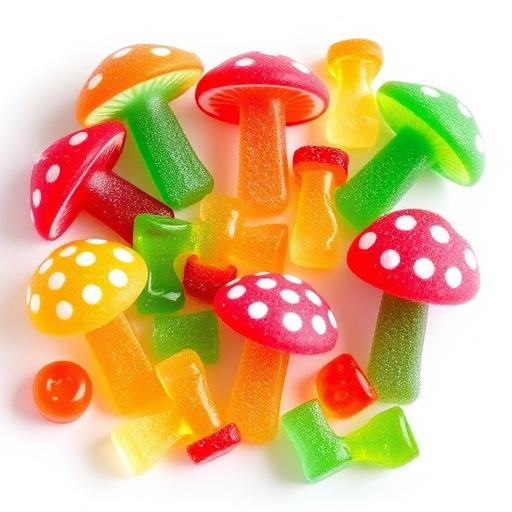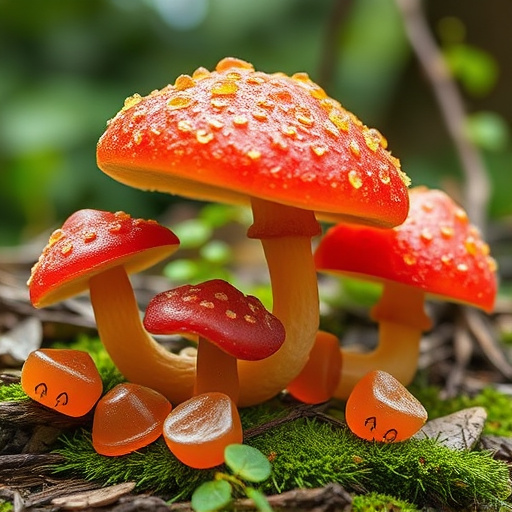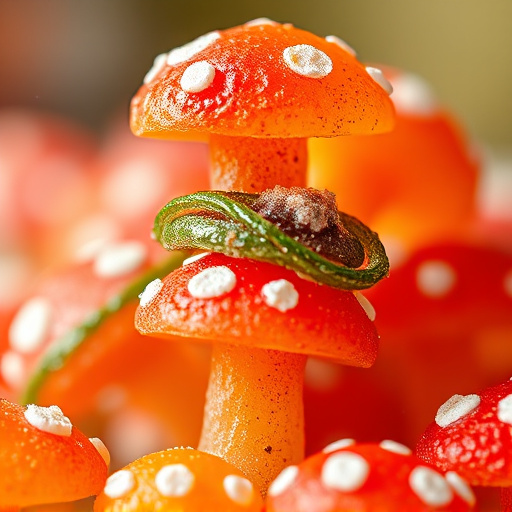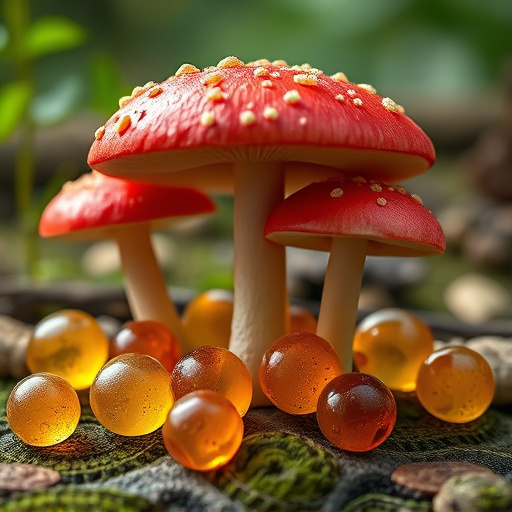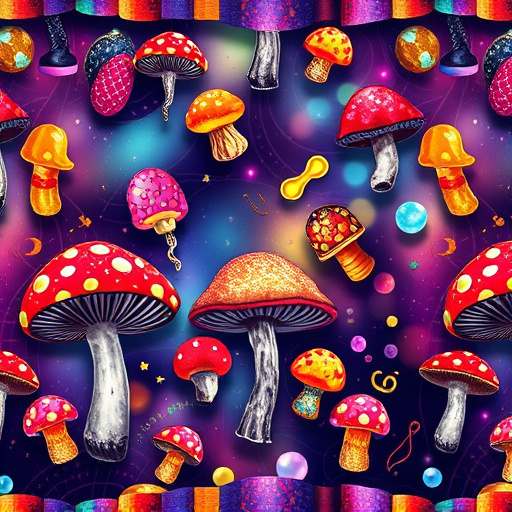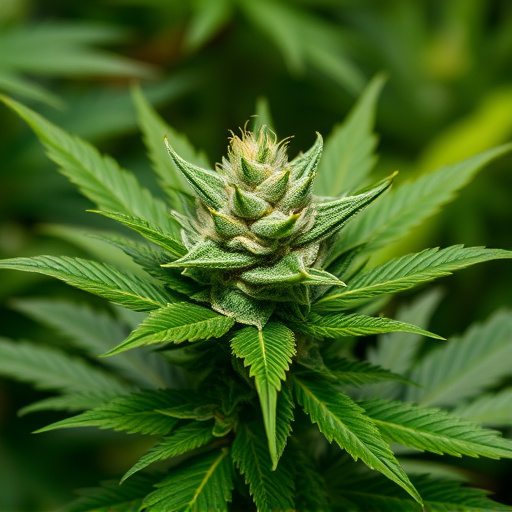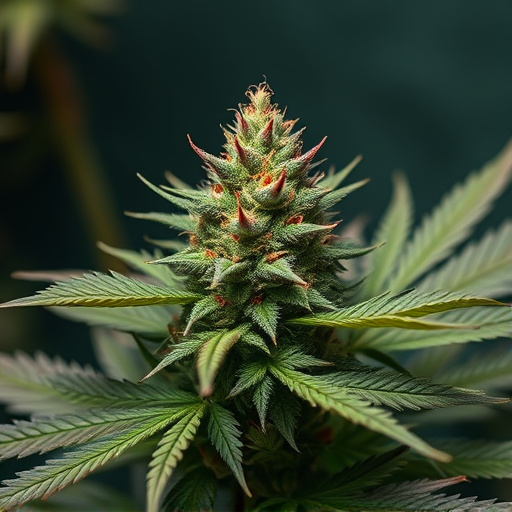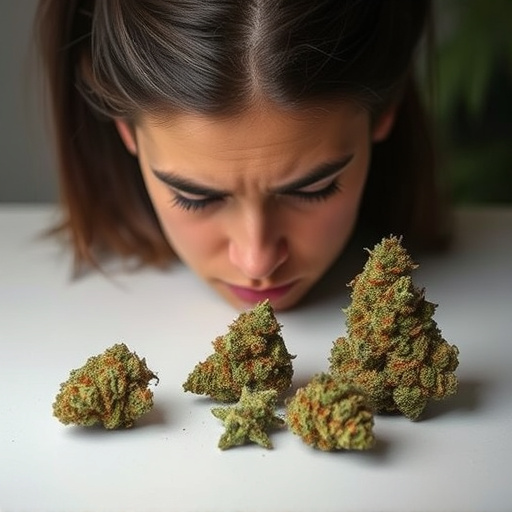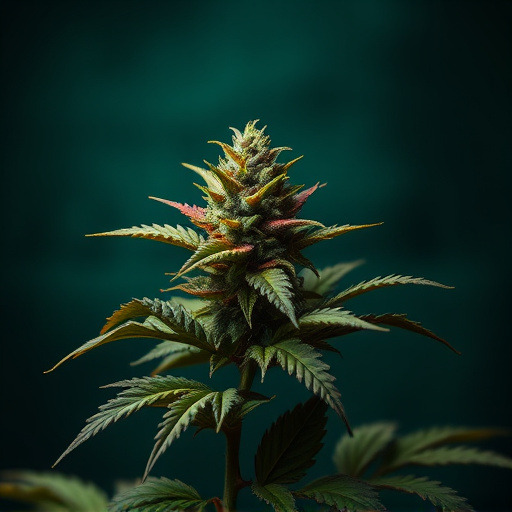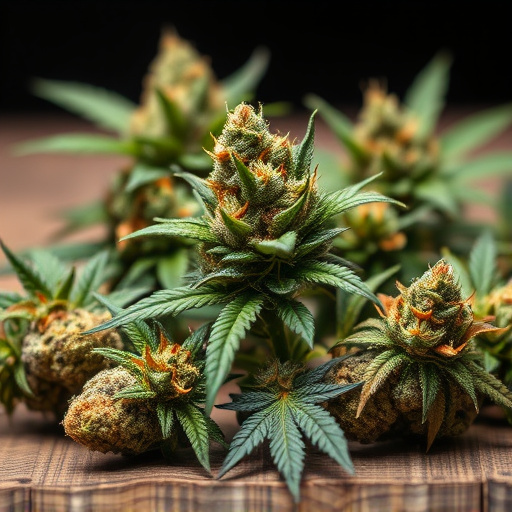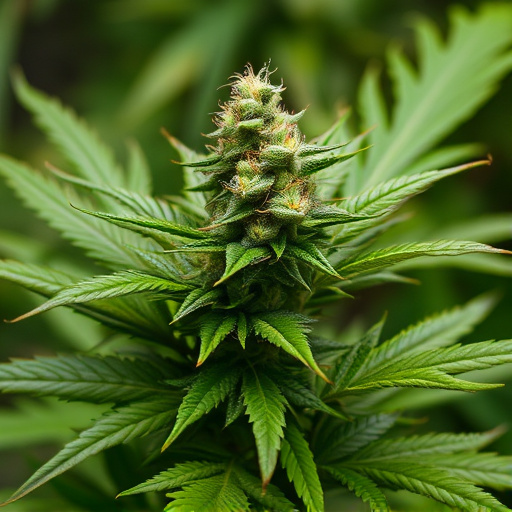Anxiety weed strains, featuring varying cannabinoid profiles like high-CBD and balanced THC:CBD ratios, are gaining popularity as natural solutions for managing persistent worry and fear. These strains interact with the endocannabinoid system to induce calmness, enhance sleep, and improve emotional well-being. However, due to cannabis' potential for inducing anxiety or paranoia, especially at higher THC levels, consulting healthcare professionals is essential before using anxiety weed strains.
Cannabis flower has gained significant attention for its potential therapeutic benefits, particularly in managing anxiety. This article explores the intricate relationship between anxiety and cannabis, delving into specific anxiety weed strains and their unique compounds. We discuss the therapeutic advantages and safety considerations surrounding the use of cannabis for anxiety, providing insights that can guide individuals navigating this alternative approach.
- Understanding Anxiety and Its Relationship with Cannabis Flower
- Exploring Anxiety-Specific Weed Strains and Their Compounds
- Therapeutic Benefits and Safety Considerations for Using Cannabis for Anxiety
Understanding Anxiety and Its Relationship with Cannabis Flower
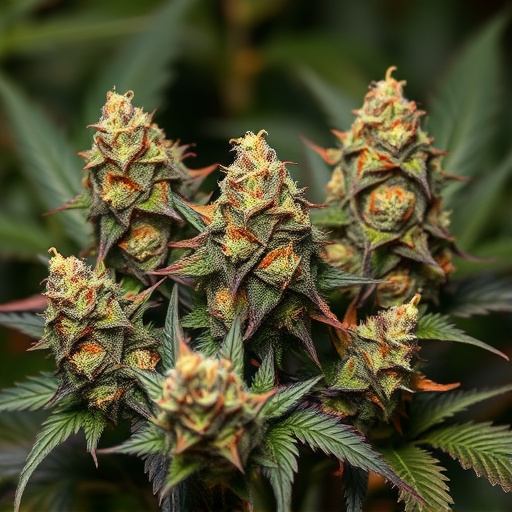
Anxiety is a common mental health condition characterized by feelings of worry, fear, and unease that can significantly impact daily life. It’s a complex disorder with various triggers and manifestations, making its treatment a nuanced process. In recent years, there has been growing interest in exploring alternative therapies, including the use of cannabis flower, for managing anxiety.
Cannabis flower, known for its diverse chemical compounds, particularly cannabidiol (CBD) and tetrahydrocannabinol (THC), has shown potential in mitigating anxiety symptoms. Different strains of weed are now cultivated with specific cannabinoid profiles, catering to users seeking relief from anxiety. Some anxiety weed strains are high in CBD, which is believed to interact with the endocannabinoid system to promote calmness and reduce stress without inducing psychoactive effects. Others may have a balanced THC:CBD ratio, offering both relaxing and uplifting properties, depending on individual preferences.
Exploring Anxiety-Specific Weed Strains and Their Compounds
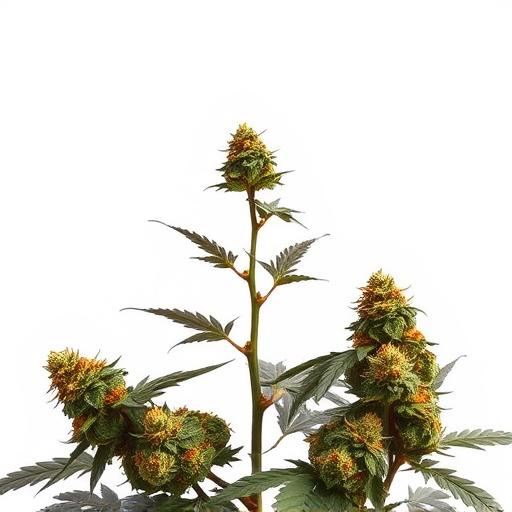
Anxiety is a prevalent condition that can significantly impact daily life, and many individuals are seeking natural alternatives for relief. In this context, exploring specific anxiety weed strains has gained interest due to the potential therapeutic benefits of cannabis. Different cannabis strains contain various compounds, such as cannabinoids (including THC and CBD) and terpenes, which may have distinct effects on the body and mind.
Certain anxiety weed strains are renowned for their calming and relaxing properties, making them appealing for managing anxiety symptoms. Strains high in cannabidiol (CBD), a non-intoxicating cannabinoid, have shown promise in reducing anxiety and promoting a sense of well-being. Research suggests that CBD interacts with the endocannabinoid system, which plays a role in regulating mood and stress responses. Additionally, specific terpenes found in cannabis, like linalool and myrcene, are known for their calming effects and have been linked to reduced anxiety and improved sleep.
Therapeutic Benefits and Safety Considerations for Using Cannabis for Anxiety
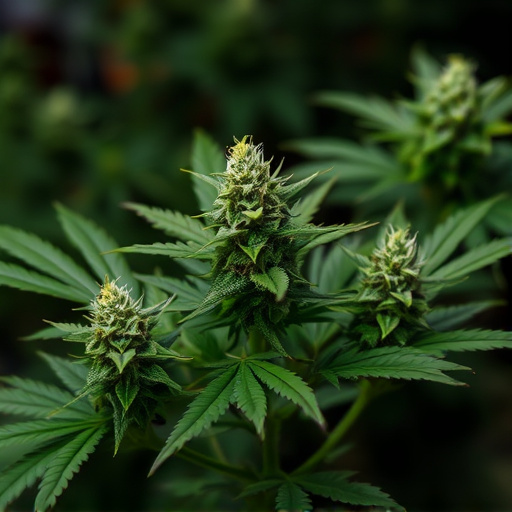
Cannabis flower has gained attention for its potential therapeutic benefits, particularly in managing anxiety. Several studies have explored the use of specific anxiety weed strains to alleviate symptoms associated with various anxiety disorders. The active compounds in cannabis, primarily tetrahydrocannabinol (THC) and cannabidiol (CBD), interact with the endocannabinoid system in the body, which plays a significant role in regulating mood and stress responses. This interaction can lead to reduced anxiety, improved sleep, and better emotional well-being for some individuals.
However, safety considerations are paramount when discussing cannabis use for anxiety. While it may offer benefits, cannabis also contains THC, which can induce feelings of paranoia or anxiety in certain users. Additionally, the quality and potency of different strains vary widely, requiring consumers to exercise caution and seek guidance from healthcare professionals. Individual responses to cannabis differ, and what works for one person might not be suitable for another, especially those with a history of substance abuse or mental health issues.
The medical potential of cannabis flower, particularly its role in managing anxiety, has gained significant interest. Understanding the complex relationship between anxiety and cannabis, as well as exploring specific anxiety-targeting anxiety weed strains and their compounds, offers a promising therapeutic avenue. While safety considerations must be addressed, ongoing research highlights the benefits of cannabis-based treatments for those seeking alternative options to manage this common condition.
